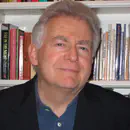
"The egocentric ideal of a future reserved for those who have managed to attain egoistically the extremity of `everyone for himself' is false and against nature,” Pierre Teilhard de Chardin, The Phenomenon of Man (1955)
Since the Peace of Westphalia in 1648, world politics have been shaped by sovereignty-centered competition and intermittent war. Considered over time, especially as technologies of destruction become more accessible and less discriminate, this seventeenth-century system of belligerent nationalism could never succeed, It could only ensure the plausibility of humanity’s worst-case scenarios.
What should be done, especially by the major powers now seeking clarity amid rapidly accumulating decisions of the current US government? This is not just an important question. It is the single most important query of present times. This is because principal national leaders will need to plan rationally, systematically and purposely for planetary survival, and because the outlook for collaborative success is diminishing steadily.
All necessary planning calls for an unprecedented willingness to realign narrowly national-interests with the wider interests of humankind. Though this requirement will first appear fanciful and visionary, nothing could be less realistic than to remain on a permanent collision course.“The visionary,” warns Italian film director Federico Fellini, “is the only realist.”
There is more. If left unopposed or merely modified by token reforms, world politics will experience ever more frequent and catastrophic breakdowns. Accordingly, to call for any further hardening of “tribal” conflict - the underlying call of President Donald Trump's "America First" - would be to reject everything we ought already to have learned about law, civilization and species survival.
In broad contours, the problem is not complicated. Unless we finally take serious steps to implement an organically cooperative planetary civilization - one based on the irremediably central truth of human "oneness" - there will be no civilization at all. To summarily reject this conclusion would surrender an imperiled species to overlapping spasms of nuclear proliferation and unconventional war. Right now, as beleaguered nation-states struggle for direction, such surrender could be existential.
There is still more. The imperative nature of our task is clarified by humanity’s conspicuous “advances” in mega-weapons and military technologies. Augmenting such “progress,” certain nation-states are already beginning to accept nuclear warfighting concepts of nuclear deterrence, cyber-warfare and "internet mercenaries." Insidiously, the largest spread of internet warfare surrogates will take place among bitterly authoritarian and dictatorial regimes.
It’s time for candor. Jurisprudentially, we remain at the beginning of a herculean but indispensable task. Until now, in such quintessentially primal matters, we humans have managed to miss what is most important: Recognizing a latent but perpetually determinative "oneness" to world politics.
On this endangered planet, there remains a grave need for erudition and learning. The critical theme of human oneness can be encountered in variously vital but generally-ignored literatures; for example, among such philosophic giants as Sören Kierkegaard, Sigmund Freud, Hermann Hesse, Carl Jung, Jose Ortega y' Gasset, Karl Jaspers, Emmanuel Levinas, Max Stirner, Miguel de Unamuno and Pierre Teilhard de Chardin. Ultimately, ignoring these literatures represents an elemental threat to every country’s physical survival.
Antecedent questions should now be raised. Why have we humans made ourselves so existentially vulnerable? Among other things, the lucid and correct answer would emphasize worldwide desperation to seek personal identity and meaning in “membership.”
Everything, as we might learn best from Swiss psychologist Carl G. Jung, begins with the individual, with the microcosm. We humans generally fear solitude or "aloneness" more than anything else on earth, sometimes even more than death. Amid the chaos that is now stampeding across entire continents, we still direct primary loyalties to “tribe.” Always, everywhere, irrespective of any peremptory expectations of national and international law, individuals prostrate themselves to destructive expectations of nation-states.
More often than we might first care to admit, such subordinating behavior carries with it acceptance of "martyrdom." Recalling the marooned English schoolboys in William Golding's Lord of the Flies, we may be reminded here that the veneer of human civilization is inevitably razor thin. Vastly impressive scientific discoveries aside, whole swaths of humankind remain fiercely dedicated to manifestly corrosive variants of "sacrifice." In the end, such atavistic dedication best explains not only war, but also terrorism.
As a species, we remain determinedly irrational? Why? The most defensible answer lies in our shortsighted views of “realism." In the clarifying light of history, such views should immediately be recognized as self-defiling and self-destructive. Not until the twentieth century, after all, did international law even bother to criminalize aggressive war and genocide.
Hope exists, but now it must sing softly, with circumspection, inconspicuously, almost sotto voce. Though counter-intuitive, especially in the palpably battered United States, the time for celebrating gleaming new technologies and artificial intelligence (AI) is partially over. To meaningfully survive together on this realpolitik-imperiled planet, all should struggle to discover an individual life that is detached from presumptively ritualistic obligations to “belong." Only after such an elemental discovery could humankind reasonably hope to reconstruct world politics on a sound basis. This means, above all else, a tangible foundation of global interdependence and human "oneness."
In his landmark work, The Decline of the West, first published during World War I, Oswald Spengler inquires: "Can a desperate faith in knowledge free us from the nightmare of the grand questions?" This remains a profound and pivotal query. The correct answer must accept that lethal “tribal” conflicts can never be undone by tariff manipulations, newer missiles, whimsical treaty violations or “common sense.”
Our historically-tribal planet lacks a tolerable future not because we have been too slow to learn what has been taught, but because what has been taught has generally missed the real point. To wit, there can be no compelling assurances of planetary survival even if large majorities manage to acquire shiny new "personal devices" or to own cars that drive themselves. Let us be candid. In a world where mass killings are still commonplace, these are false and foolish goals.
What then? Traditional world political "remedies" will be insufficient because Planet Earth remains locked in a remorseless trajectory. Though even a partial exit from this lethal trajectory would be welcome, it would still not release the United States from its legal obligation (national and international law) to stand with Ukrainian victims of Russian aggression, rather than the Russian victimizers. Also required of American national leaders would be to cease law-violating presidential threats against Panama, Greenland, Mexico and (looking ahead) who knows where else.
US President Donald J. Trump’s “America First” may actually be a real-life policy version of what Pierre Teilhard de Chardin calls “everyone for himself.” Left in place, such America First "egocentric" policymaking would have the same grievous impacts on America’s national security as tariff wars may have on American and global economic security. While nothing scientific can be said about nuclear war probabilities (probability statements must always be based on the determinable frequency of pertinent past events, we know enough to conclude succinctly:
Foreseeable intersections between “egocentric ideals” and nuclear arsenals could spark humankind’s “final pandemic.” [1]
LOUIS RENÉ BERES was educated at Princeton (Ph.D., 1971) and is Professor Emeritus of International Law at Purdue. Born in Zürich at the end of World War II, he is the author of many books and articles dealing with world politics, law, literature and philosophy. Professor Beres' writings have been published in Jurist; The New York Times; Yale Global; Harvard National Security Journal; International Journal of Intelligence and Counterintelligence; The Atlantic; The Jerusalem Post; Air-Space Operations Review (USAF); Oxford University Press; The Brown Journal of World Affairs; The Hill; The Hudson Review; Parameters: Journal of the U.S. Army War College; Modern War Institute (Pentagon); The War Room (Pentagon); Bulletin of the Atomic Scientists; BESA Perspectives (Israel); INSS Strategic Assessment (Israel); Israel Defense (Israel); World Politics (Princeton) and International Security (Harvard). His twelfth book, Israel's Nuclear Strategy: Surviving amid Chaos, was published in 2016 (2nd. ed., 2018). https://paw.princeton.edu/new-books/surviving-amid-chaos-israel%E2%80%99s-nuclear-strategy
Notes:
[1]See by this writer, at JURIST: Louis René Beres, https://www.jurist.org/commentary/2025/04/reducing-nuclear-war-risks-how-america-can-address-an-urgent-under-emphasized-problem/ Such a “spark” could appear suddenly or in increments.
A version of this article previously appeared in the Case Western Reserve University Law School journal (War Crimes Prosecution Watch).
